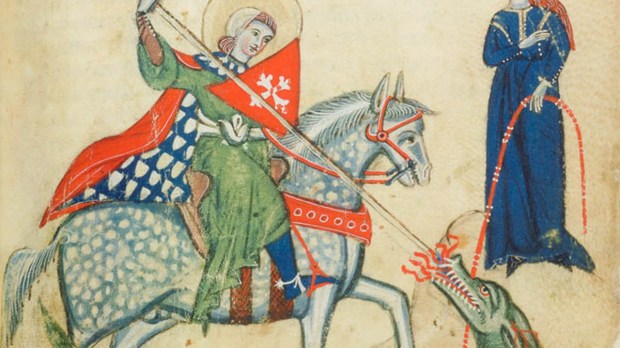Lenten Campaign 2025
This content is free of charge, as are all our articles.
Support us with a donation that is tax-deductible and enable us to continue to reach millions of readers.
St. George is among the most popular saints in the English-speaking world, widely known for his “slaying of dragons.”
However, his legendary fighting skills are not what led to his recognition as a saint.
St. George the martyr
St. George is known in the Catholic Church as a martyr, having died for the faith in the 4th century.
He is generally believed to have been a soldier in the Roman army and it was his Christian faith that made him a target.
Fr. Alban Butler in his Lives of the Saints recounts one of the more popular accounts of his life and death.
After the death of his father, [St. George] went with his mother into Palestine, she being a native of that country, and having there a considerable estate, which fell to her son George. He was strong and robust in body, and having embraced the profession of a soldier, was made a tribune, or colonel in the army. By his courage and conduct, he was soon preferred to higher stations by the Emperor Diocletian. When that prince waged war against the Christian religion, Saint George laid aside the marks of his dignity, threw up his commission and posts, and complained to the emperor himself of his severities and bloody edicts. He was immediately cast into prison, and tried, first by promises, and afterwards put to the question, and tortured with great cruelty; but nothing could shake his constancy. The next day he was led through the city and beheaded.
Historians disagree about the exact timeframe of his death and whether it was during the reign of Emperor Diocletian.
The essence of St. George’s story is that he became known as a martyr, and Eastern Christians even call him a “Great Martyr.”
St. George is a saint not for slaying a dragon, but because of his courageous love of God and unwillingness to renounce his Christian religion.



